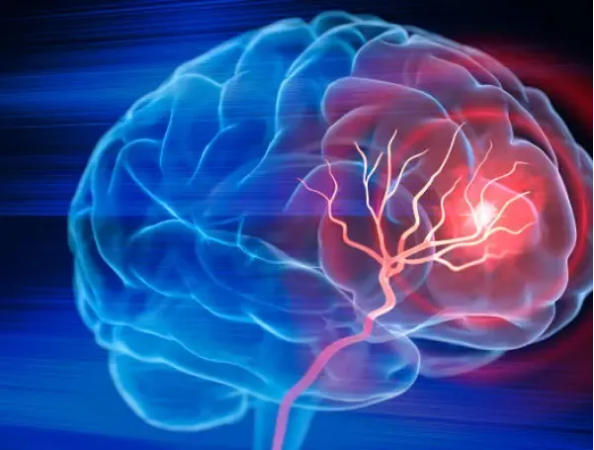Excessive drinking can bring forward a stroke by more than 10 years and make recovery more difficult, according to a Harvard study.

Daily excessive alcohol consumption can advance the onset of a hemorrhagic stroke by more than 10 years and hinder subsequent recovery. This is according to research from Harvard University, published in the journal Neurology, which analyzed the effects of prolonged alcohol consumption in older adults hospitalized for cerebral hemorrhage.
The impact of overconsumption The study included 1,600 adults with a mean age of 75 who were hospitalized for intracerebral hemorrhage. Researchers defined binge drinking as the regular intake of three or more alcoholic drinks per day , each equivalent to 14 grams of alcohol. Among the participants, 104 people (7%) met this criterion.
The results showed that heavy drinkers suffered a stroke at an average age of 64, compared to 75 for those who did not drink excessively , a difference of 11 years. Furthermore, cerebral hemorrhages were on average 70% more frequent and had worse clinical outcomes.

Regular consumption of three or more alcoholic drinks per day increases the risk of cerebral hemorrhage. Photo: iStock
Heavy drinkers showed greater damage to the small blood vessels in the brain , known as cerebral small vessel disease, a major cause of intracerebral hemorrhage.
According to Dr. M. Edip Gurol, author of the study and professor at Harvard, this damage increases the severity of the stroke and the likelihood of subsequent cognitive impairment.
"While previous studies have linked excessive alcohol consumption with an increased risk of stroke, our findings suggest that it not only increases the severity of a hemorrhagic stroke, but may also accelerate long-term damage to small blood vessels in the brain," the professor notes.
The team found that those who drank more were more than three times as likely to show hyperintensities in the white matter — a sign of chronic brain damage — and almost twice as likely to exhibit patterns associated with hypertension.
Slower recovery and worse prognosis Participants with excessive alcohol consumption also had higher blood pressure and lower platelet counts upon hospital admission, factors that negatively impact recovery. Furthermore, they were more likely to experience deep brain hemorrhages and intraventricular extensions, both associated with worse neurological outcomes.
Reducing consumption improves the outlook Dr. Gurol emphasized that reducing or eliminating excessive alcohol consumption can slow the deterioration of blood vessels in the brain and decrease both the risk and severity of future strokes. It could also prevent other complications such as cognitive decline and long-term disability.
The study has some limitations, such as its cross-sectional design and reliance on self-reported alcohol consumption, which may introduce bias into the results. Even so, the researchers conclude that monitoring alcohol consumption should be part of preventive strategies for people at high risk of stroke.

Cerebral hemorrhages in heavy drinkers are 70% more extensive. Photo: iStock
*This content was rewritten with the assistance of artificial intelligence, based on information published by Europa Press, and was reviewed by a journalist and an editor.
eltiempo




